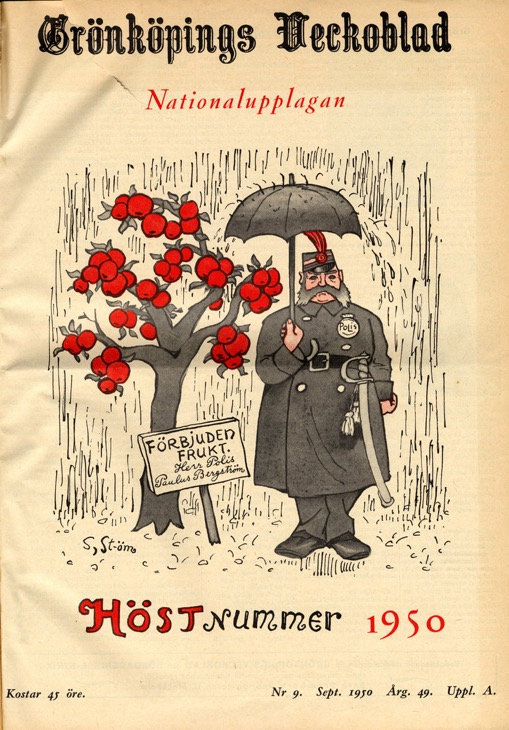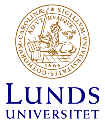”Epilog av A:lfr-d V:stl-nd” och Grönköpings Veckoblad
– om Gunnar Ekelöfs pekoralpastischer
Abstract
Utdrag från textens inledning:
"'Också jag har varit Alfred Vestlund i Grönköpings Veckoblad', avslöjar Gunnar Ekelöf (1907–1968) i en intervju i Svenska Dagbladet den 8 april 1952. För första gången röjer författaren härmed offentligt att han publicerat sig under pseudonymen A:lfr-d V:stl-nd, Nils Hasselskogs nom de plume par excellence. Tre år senare låter han samlingen Strountes avslutas med 'Epilog av A:lfr-d V:stl-nd' och ger därmed denna dikt en framträdande placering i boken. Av allt att döma har Ekelöf attraherats av pekoralpastischen som subgenre och metod. I pekoralpastischerna fick Ekelöf fritt spelrum för sin lekfullhet som diktare. Här blandade han skämt och allvar, odlade sin svarta humor, personligt fattade absurdism och sitt intresse för nonsens. Och precis som 1700-talsförfattaren Olof von Dalin såg Ekelöf det avsiktliga pekoralets litteraturkritiska potential. Genom att skriva ’dåliga’ dikter och antipoesi – dikter med avsiktliga dissonanser, absurda fraser och sarkastiska vändningar – kunde han i rollen som Alfred Vestlund rikta kritik mot 40-talisterna och deras många epigoner. [...]"

Downloads
Published
How to Cite
Issue
Section
License
Copyright Notice
- Authors retain copyright and grant the journal right of first publication with the work simultaneously licensed under a Creative Commons Attribution License that allows others to share the work with an acknowledgement of the work's authorship and initial publication in this journal.
- Authors are able to enter into separate, additional contractual arrangements for the non-exclusive distribution of the journal's published version of the work (e.g., post it to an institutional repository or publish it in a book), with an acknowledgement of its initial publication in this journal.
- Authors are permitted and encouraged to post their work online (e.g., in institutional repositories or on their website) prior to and during the submission process, as it can lead to productive exchanges, as well as earlier and greater citation of published work (See The Effect of Open Access).



